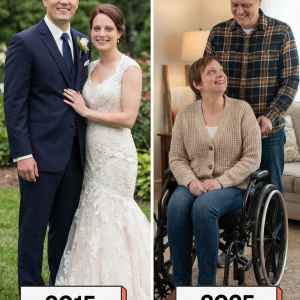She sat quietly inside his prison cell, awaiting execution—not hers, but his. And as he asked for one final conversation, what followed was not just a goodbye, but a plea for a justice system that sees more than just a crime—it sees a child.
In the United States, one of the most heavily incarcerated nations in the world, a chilling statistic continues to spark global outrage and soul-searching: at least 79 children under the age of 14 are currently serving life sentences without the possibility of parole.
This haunting number, brought to light by human rights groups like Human Rights Watch and the Equal Justice Initiative, has ignited fierce debate over the ethics of juvenile sentencing—and whether a child can ever truly be beyond redemption.
Each of these cases carries its own tragic complexity. Some of these minors were convicted of homicide committed during a robbery; others were found guilty by association, having played secondary roles in violent crimes. Many were never armed. Most came from environments scarred by generational poverty, abuse, systemic racism, and broken homes.
Perhaps the most well-known example is Lionel Tate. At just 12 years old, Tate was arrested for the death of a 6-year-old girl during a wrestling game gone terribly wrong. Though his sentence was later overturned, his case raised an urgent question: can children truly comprehend the consequences of their actions—and should they be judged as if they can?
“Sentencing children to life behind bars violates the very core of justice and human rights,” argues Juan Méndez, former United Nations Special Rapporteur on Torture. “These young people are still developing—emotionally, cognitively, morally. To cage them forever is to abandon the very notion of rehabilitation.”
Still, prosecutors and state officials in places like Florida, Michigan, and Pennsylvania remain firm. Some crimes, they argue, are simply too grave—even if committed by a child. These states lead the country in juvenile life-without-parole sentences, drawing criticism for applying adult-level punishment to underdeveloped minds.
Over the past decade, the U.S. Supreme Court has delivered several landmark decisions. In 2012, it ruled that mandatory life sentences for juveniles are unconstitutional. In 2016, it extended that decision retroactively, urging the review of past convictions. Still, many of those reviews remain unfulfilled—frozen in bureaucratic limbo.
Advocacy organizations continue to push for reform. They promote alternatives like restorative justice, mentorship, rehabilitation programs, and sentence reviews. Their goal: to replace a system of permanent punishment with one rooted in hope and growth.
“Childhood should be a place of mistakes and learning—not a concrete cell without an exit,” says civil rights lawyer Bryan Stevenson. “When we lock away a child forever, we’re not just giving up on them—we’re giving up on ourselves, and on the science that says children can change.”
In a country constantly navigating the balance between justice, security, and compassion, the haunting reality of 79 children serving life without parole stands as a brutal mirror. It asks: How do we measure justice? And how do we treat those too young to have even learned what justice means?
Because in the end, the true test of a nation’s humanity may lie not in how it treats its strongest—but in how it safeguards its most vulnerable.





